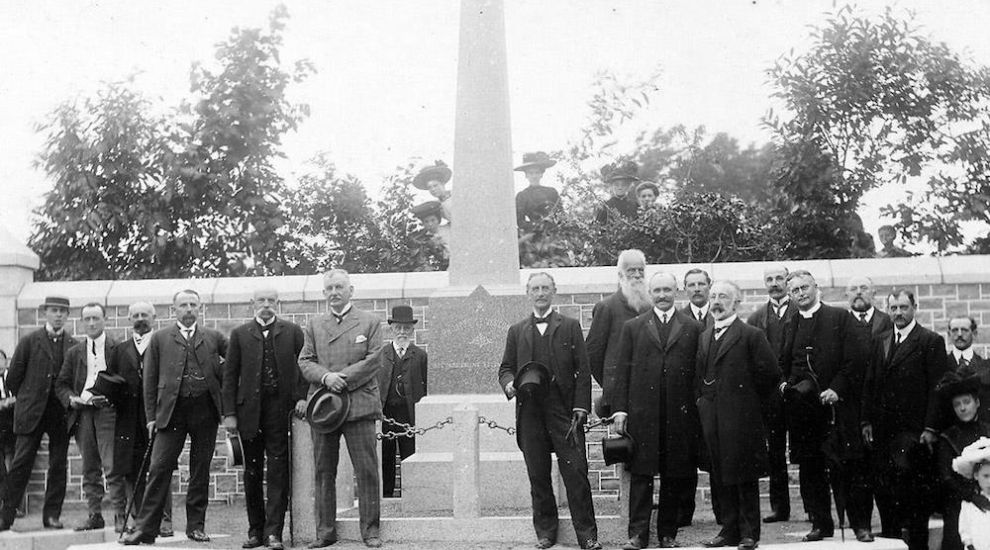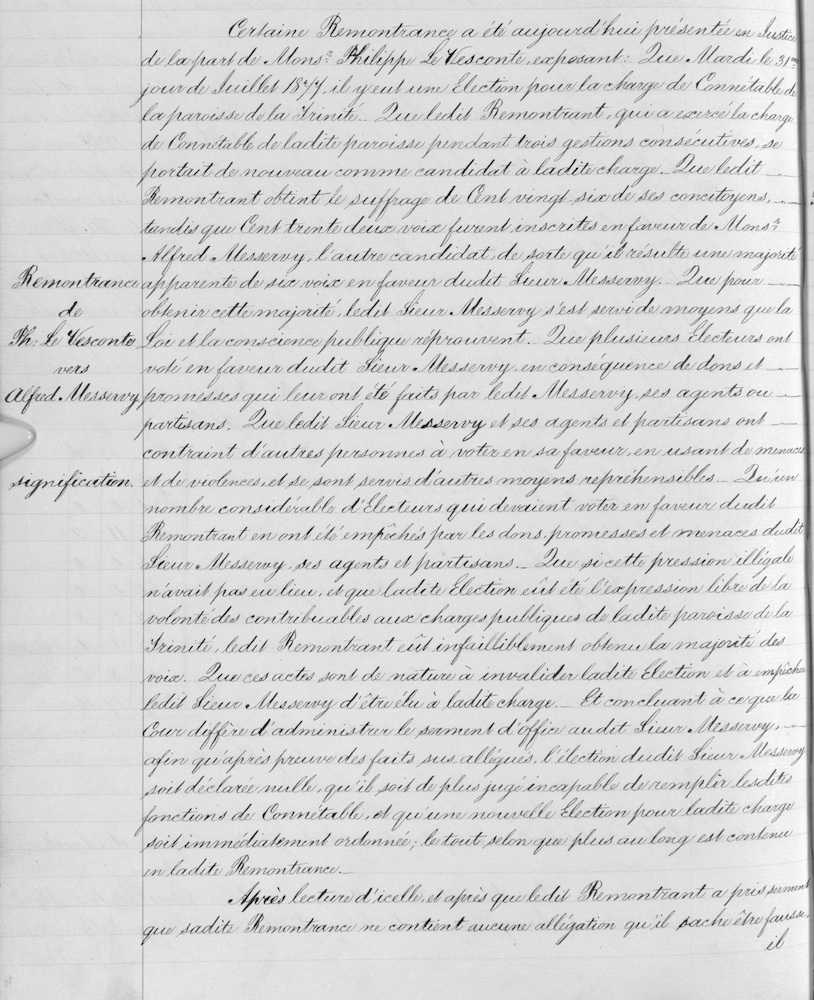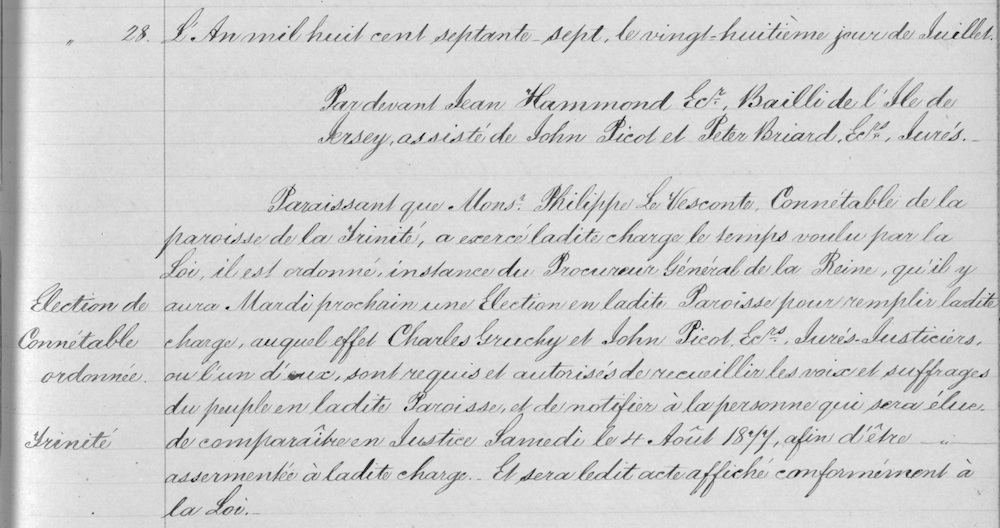


As islanders heads to the polls tomorrow, candidates will be hoping their path to the States Assembly runs smoother than it did for the Constable of Trinity 145 years ago, when the election was beset with controversy.
In 1877, the election of a new Constable in the parish saw the sitting politician unseated, a Court case contesting the result, and accusations of libel.
On Saturday 28 July that year, the Royal Court had declared the term of Constable Philippe Le Vesconte expired and an election was called. The following Tuesday was set as the day on which the vote should be taken.
Le Vesconte had been the Constable for the previous nine years and may have expected an uncontested election. He was to be sorely disappointed when an opponent in the shape of Alfred Messervy came forward.
At this time, the principal tenants of the parish would decide who became Constable. Elections were conducted verbally at a public meeting and proceedings could become exceedingly heated.

A report in the Jersey Independent and Daily Telegraph hinted at the activities that took place during this particular election when it reported: “There was great excitement in the parish concerning the election, and canvassing has been carried on to its extreme limit.
In the event, Messervy won by just six votes, recording a total count of 132 to Le Vesconte’s 126. He was due to be sworn in on 4 August but while he was standing in the Royal Court and ready to take the oath of office, he was interrupted by Advocate Durell, Le Vesconte’s lawyer, who presented a remonstrance on his client’s behalf, which included accusations of election fixing.
In it, Le Vesconte claimed that Messervy had only obtained a majority by using means “both immoral and illegal”. He argued: “That several persons voted in favour of the said Messervy in consequence of gifts and promises made by the said Messervy, his agents and partisans. That the said Messervy, his agents, and partisans, compelled other persons to vote in his favour by threats and deeds of violence.
“That a large number of Electors who were about to vote in favour of your petitioner were hindered from so-doing, by the threats, promises and gifts of the said Messervy his agents and partisans. That if this illegal pressure had not been put on the constituency, and that the election had been a faithful expression of the popular will, your petitioner would have been duly elected.”
The Royal Court was called to investigate these allegations. Over 80 witnesses were summoned to give their accounts in the case. As it was deemed essential to expedite the matter, voluminous evidence started to be taken down in writing.
This continued for months until 12 November, a day set aside by the Royal Court to continue taking down evidence, when it was suddenly announced that an arrangement had been arrived at between the parties, that Le Vesconte was dropping his objections and that he recognised Messervy as the elected Constable.

The sudden ending to the matter may have been due to another court case brought by a parishioner, Jean Neel, who objected to the Parish taking on liability from Le Vesconte for money lost in the Jersey Stock Bank. In Court, Messervy supported the decision taken by the Parish to reimburse Le Vesconte – effectively supporting Le Vesconte himself and presenting a united front – and Neel’s case was dismissed.
However, one last matter was left to settle. In the course of the election case, one of the accusations that Le Vesconte had made was that the Rector of the Parish, William du Heaume, had only voted for Messervy on the promise that the new Constable would help settle financial disputes between the Parish and the clergyman. Du Heaume was so shocked by these allegations that he sued Le Vesconte for libel, claiming that as a Rector of the Parish for 27 years he couldn’t allow the allegation to go unchallenged.
The libel case was heard by the Court a year later in September 1878. Du Heaume said that Le Vesconte had irreparably damaged his reputation and demanded that he receive £100 in damages. The Court decided on the considerably lesser fine of £15 and ordered Le Vesconte to pay costs.
Despite this outcome, Le Vesconte didn’t let the experience put him off holding public office. He went on to be elected as Father of the Parish again in 1890, a position he held until his death in 1909. A memorial was commissioned in his honour and was unveiled at Les Croix in the Parish on 28 July 1910.
This story was told as part of a series in collaboration with Jersey Heritage.
To uncover more stories like this, visit Jersey Archive or search its online catalogue HERE.
Pictured top: Dignitaries at the unveiling of the Le Vesconte monument in July 1910. (Société Jersiaise)
Comments
Comments on this story express the views of the commentator only, not Bailiwick Publishing. We are unable to guarantee the accuracy of any of those comments.